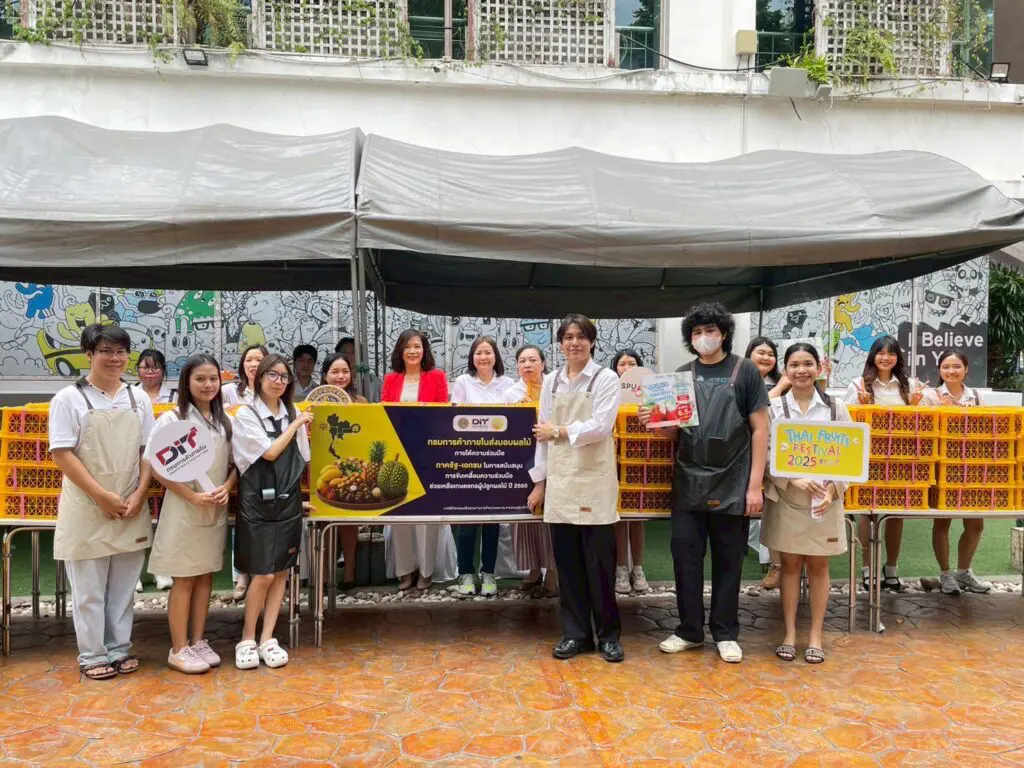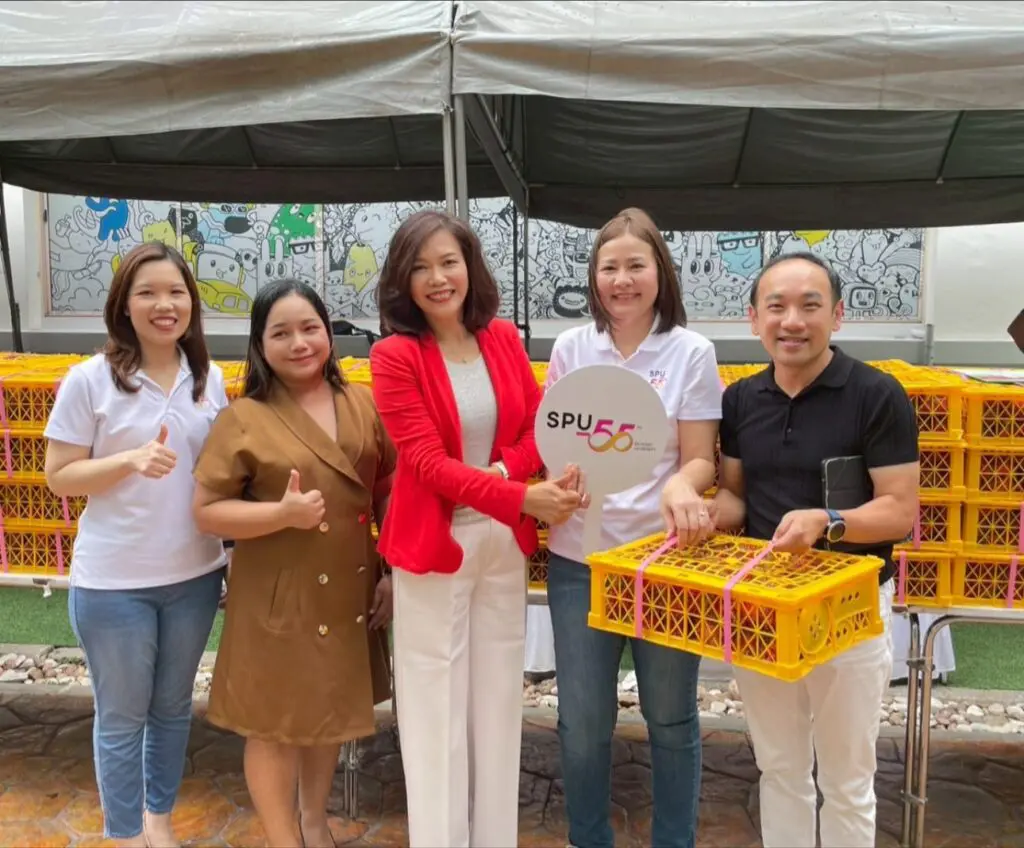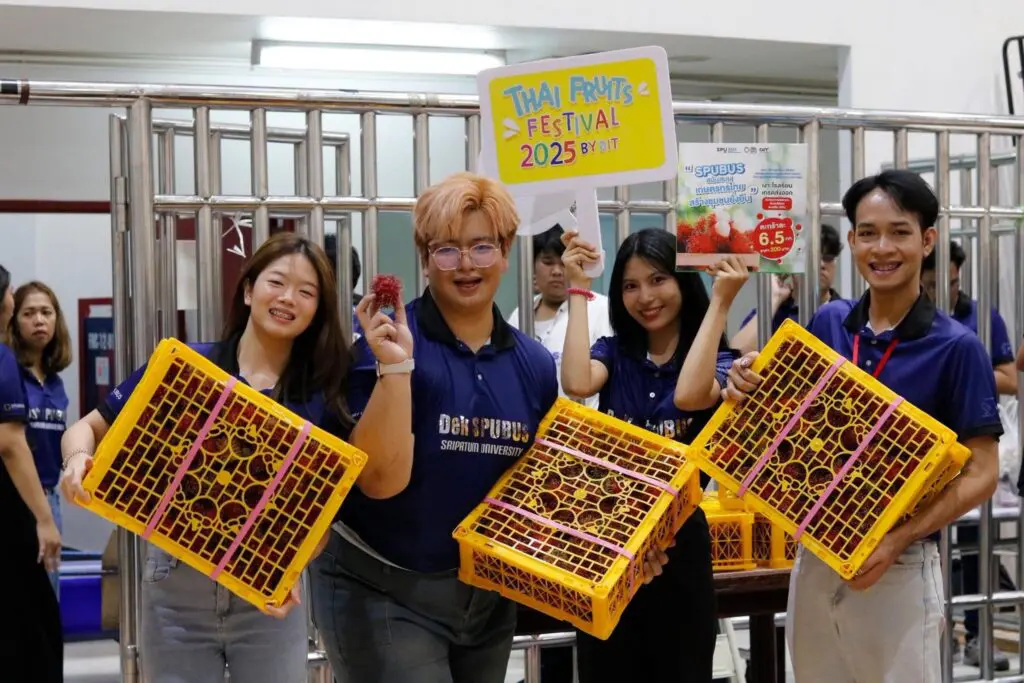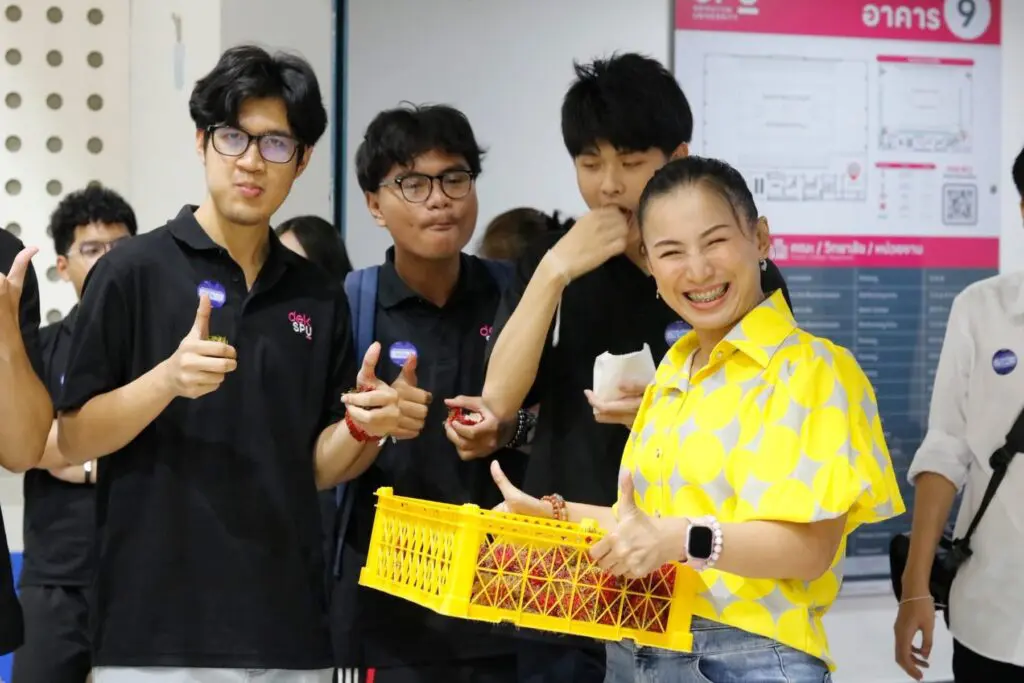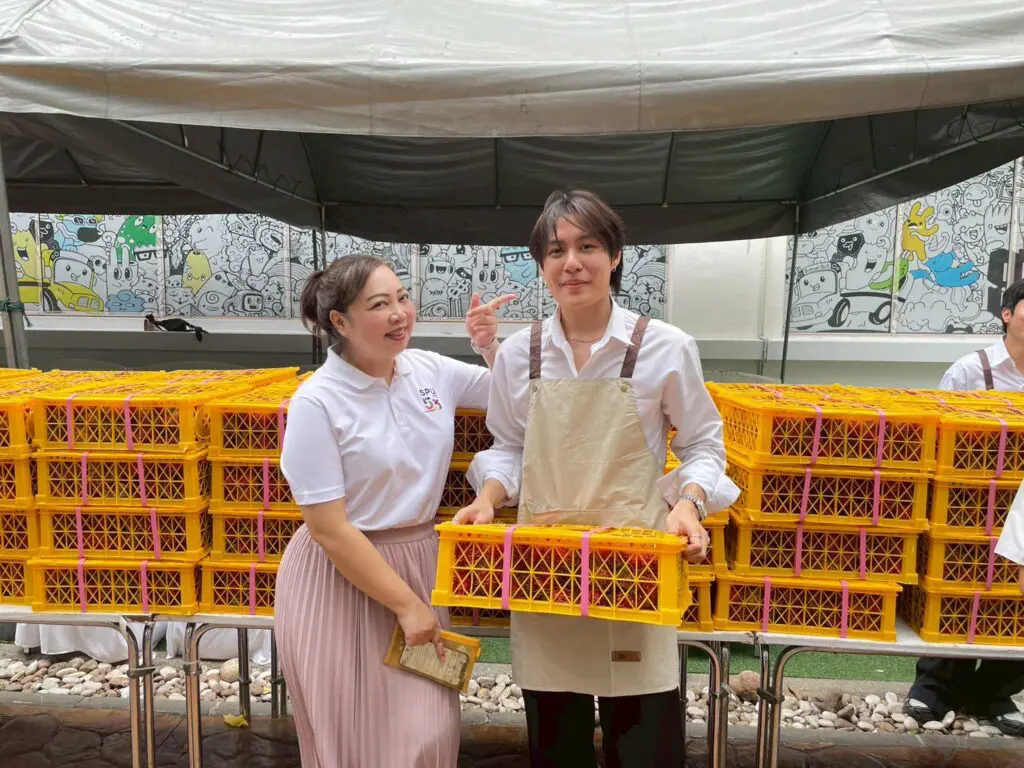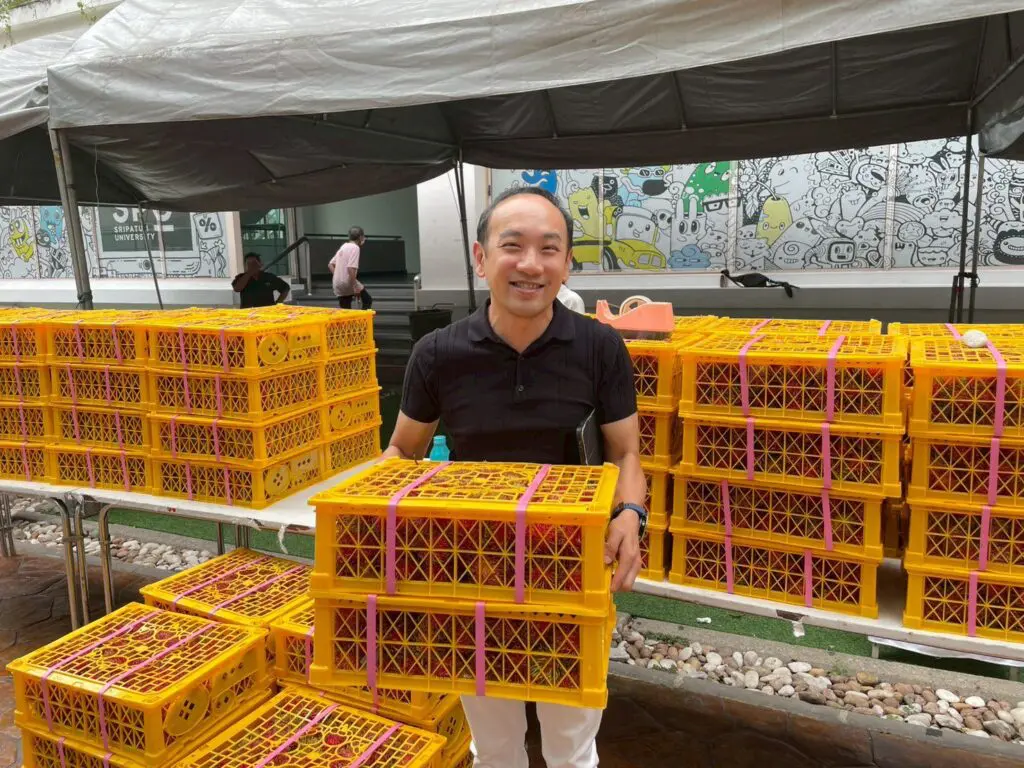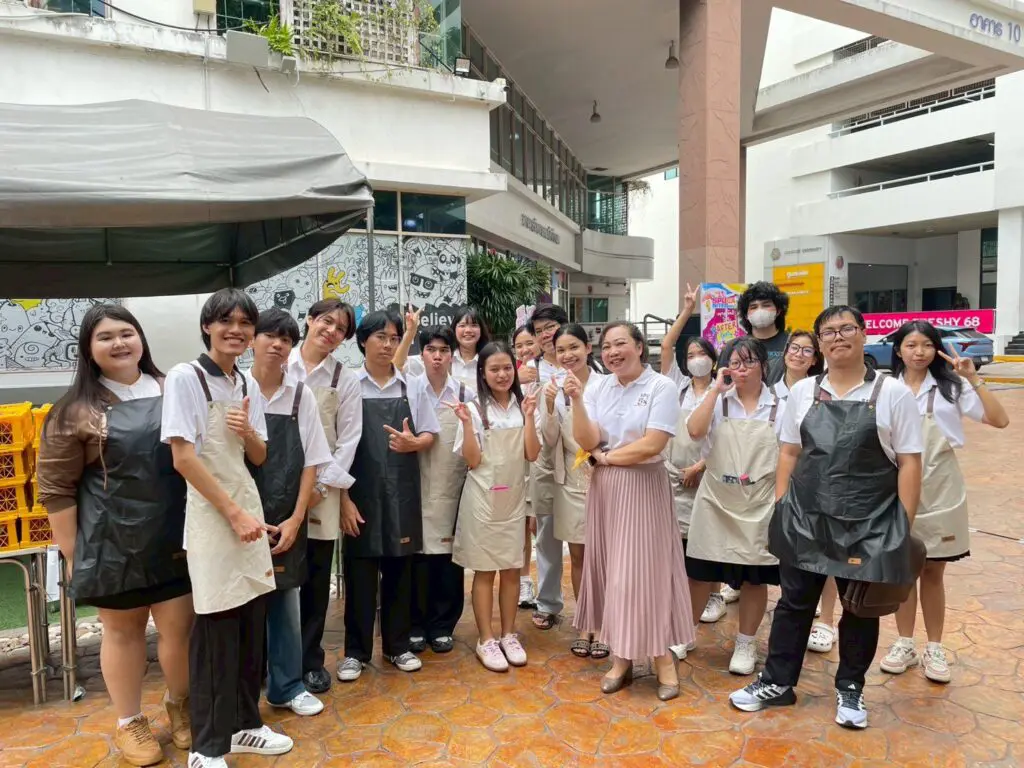SPUBUS x Department of Internal Trade : From Farm to SPU – Supporting Thai Farmers with “School Rambutan” Project
The School of Business Administration, Sripatum University, in collaboration with the Department of Internal Trade, Ministry of Commerce, organized a community engagement initiative to promote local agricultural products through the “School Rambutan” campaign. This project supports Thai farmers by connecting them directly with consumers and promoting sustainable local consumption.
Under this campaign, export-grade fresh rambutans were delivered directly from farms to faculty members, staff, and students at Sripatum University. The project highlights a collaborative supply chain between the government and higher education institutions to promote inclusive and responsible economic development.
The project aligns with the following UN Sustainable Development Goals (SDGs):
SDG 1 – No Poverty: Supporting income generation for small-scale farmers in rural areas
SDG 2 – Zero Hunger: Increasing access to fresh, safe, and nutritious food
SDG 8 – Decent Work and Economic Growth: Expanding market access for local producers
SDG 12 – Responsible Consumption and Production: Promoting sustainable consumption of locally-sourced agricultural goods
More than just a fruit market, the initiative fosters social engagement, economic sustainability, and a culture of sharing within the SPU community, demonstrating the university’s commitment to sustainable development and meaningful impact for local communities.
คณะบริหารธุรกิจ มหาวิทยาลัยศรีปทุม ร่วมกับกรมการค้าภายใน กระทรวงพาณิชย์ จัดกิจกรรมส่งเสริมผลไม้ไทยภายใต้แคมเปญ “เงาะโรงเรียน” เพื่อสนับสนุนผลผลิตเกษตรกรไทยให้สามารถเข้าถึงตลาดโดยตรง พร้อมส่งเสริมการบริโภคผลผลิตในประเทศอย่างรับผิดชอบและยั่งยืน
กิจกรรมในครั้งนี้ เป็นการเชื่อมโยงผลไม้เกรดส่งออก “เงาะโรงเรียน” สดจากสวนเกษตรกรท้องถิ่น ส่งตรงถึงมือคณาจารย์ บุคลากร และนักศึกษามหาวิทยาลัยศรีปทุม ผ่านระบบจำหน่ายที่มีการบริหารจัดการร่วมกันระหว่างภาครัฐและสถาบันการศึกษา
โครงการนี้สอดคล้องกับเป้าหมายการพัฒนาที่ยั่งยืนของสหประชาชาติ (SDGs) ได้แก่:
SDG 1: ขจัดความยากจน – โดยการสนับสนุนรายได้ของเกษตรกรรายย่อยในภูมิภาค
SDG 2: ขจัดความหิวโหย – ผ่านการเข้าถึงอาหารสด ปลอดภัย และมีคุณภาพ
SDG 8: การจ้างงานที่มีคุณค่าและการเติบโตทางเศรษฐกิจ – ส่งเสริมช่องทางตลาดใหม่ให้เกษตรกร
SDG 12: การบริโภคและการผลิตที่ยั่งยืน – เน้นการบริโภคสินค้าเกษตรภายในประเทศอย่างมีความรับผิดชอบ
กิจกรรมนี้ไม่เพียงช่วยส่งเสริมรายได้แก่พี่น้องเกษตรกรเท่านั้น แต่ยังสะท้อนถึงการมีส่วนร่วมของมหาวิทยาลัยในการสร้างสังคมแห่งการแบ่งปันและการพัฒนาที่ยั่งยืน โดยชาว SPU ได้มีโอกาสบริโภคผลไม้คุณภาพ และมีส่วนร่วมในการสนับสนุนเศรษฐกิจชุมชนไทยอย่างแท้จริง
